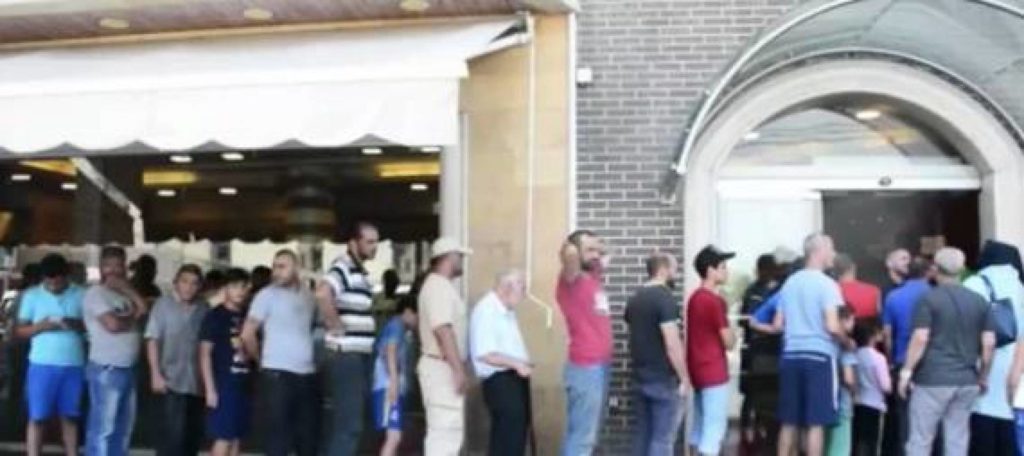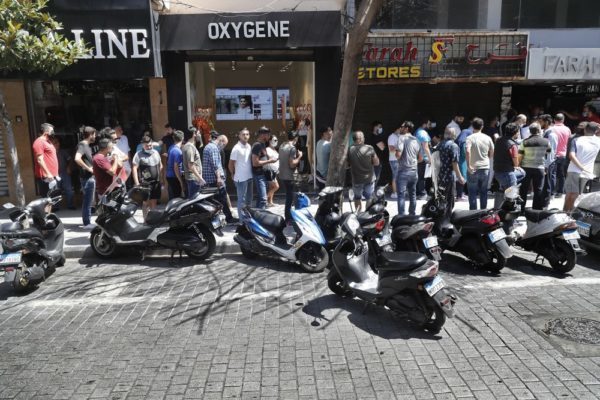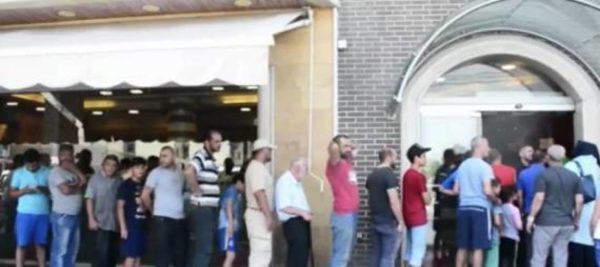By Dana KhraicheJuly 10, 2020, 7:17 AM EDT

- Central bank fixes food import rate to control inflation
- Government is in talks with the IMF for a $10 billion bailout
Lebanon is seeking to protect more of its economy from the dramatic depreciation in the local currency, fixing a subsidized exchange rate for imported food after deeming a wholesale abandonment of the decades-old peg too costly for now.
The central bank, also known as Banque Du Liban, will provide dollars for imports of food and raw materials and to licensed money changers at a rate of 3,900 pounds per dollar, Governor Riad Salameh told reporters this week. Imports of wheat, fuel and pharmaceuticals — considered strategic goods — as well as banking operations will be priced at the official peg of 1,507.5. Savers withdrawing cash from dollar accounts are now given pounds at the 3,850 rate.
The latest measures came after the currency’s decline on the black market accelerated, with the pound losing some 80% of its value against the dollar last month alone, briefly nearing 10,000. It’s also a step toward unifying the multiple exchange rates, some of which were introduced by the central bank in recent months as the worst economic crisis in decades unfolded.
The International Monetary Fund, with which Lebanon is negotiating a multi-billion dollar rescue package, asked authorities in the initial round of talks to unify the rates. They’re reluctant to ditch the peg entirely without securing an aid package first, though, fearing the move would plunge even more people into poverty and erode purchasing power.
Lebanon’s Currency Crisis
Instead, the central bank’s betting that a dramatic decline in imports due to the dollar shortage will rebalance the system and allow it to channel what hard currency it has left more effectively. In the first quarter of this year, Lebanon’s trade deficit dropped by half to $2 billion from the same period last year. Total imports dropped by an annual 41% in March, according to Blom Bank.

Given the depth of the currency chaos, the slow pace of IMF talks and the dwindling foreign currency reserves, which Salameh said this week had reached about $20 billion, that might not be enough.
“They’ve managed to compress imports so aggressively that a key source of demand for that FX has been reduced but there isn’t enough to ensure a unified rate,” said Nafez Zouk of Oxford Economics.
About 300 food items, including meat, vegetables and milk, are currently eligible for the special rate. The list will gradually be expanded to cover non-food items that people use on a daily basis.
Food inflation soared 190% in May from a year earlier, reigniting protests and riots, and is likely to have risen further in June due to the currency collapse. With few hard currency inflows from remittances and no aid or investment in sight, the government has become increasingly reliant on the central bank to finance imports and its own needs, seeking to borrow 1.2 trillion pounds for a social safety fund.
Economists have warned that unless Lebanon takes urgent steps to stabilize the currency and restore confidence, allowing it secure aid and return to the bond market, the country could be headed toward a new bout of hyperinflation and a long period of depressed growth.


Leave a Reply
You must be logged in to post a comment.